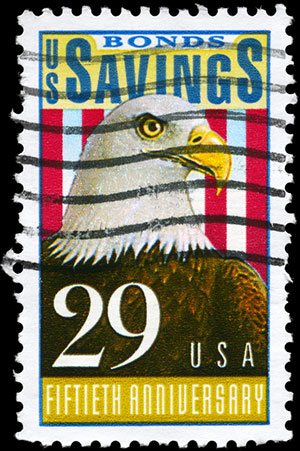
The U.S. Savings Bond Tax Trap
Open that safe deposit box. See if your bond has matured.Did you buy U.S. Savings Bonds decades ago? Or did your parents or grandparents purchase some for you? If so, take a look at them before April 15 rolls around. Your bonds may have matured. That means they are no longer earning interest, and it also means you need to cash them in.1
Check those maturity dates. Sometimes people hold U.S. Savings Bonds past the date of final maturity, often by accident. The old bonds are simply stashed away somewhere and forgotten.
While the Treasury will not penalize you for holding a U.S. Savings Bond past its date of maturity, the Internal Revenue Service will. Interest accumulated over the life of a U.S. Savings Bond must be reported on your 1040 form for the tax year in which you redeem the bond or it reaches final maturity.
This must be done even if you (or the original bondholder) chose to have the interest on the bond accumulate tax-deferred until the final maturity date. Failure to report such interest may lead to a federal tax penalty.2
You are supposed to pay tax on a U.S. Savings Bond in one of two ways. Most bondholders choose to defer the tax until the bond matures. Once they redeem the bond, they report the interest through a 1099-INT form. Others choose to pay the tax annually prior to cashing the bond in, reporting the increase in the value of the bond as taxable interest each year.2,3
What if you find out you have held a U.S. Savings Bond for too long? You need to amend your federal tax return for the year in which the bond reached final maturity. You can file an amended return with the help of IRS Form 1040X. It may seem more logical and less arduous to report the forgotten, accumulated U.S. Savings Bond interest on your latest federal tax return, but the IRS does not want you to do that. The longer you leave the accumulated interest unreported, the greater the chance you will be cited for a tax penalty (or assessed a larger one than the one already in store for you).2
Another note about reporting interest: if a U.S. Savings Bond has matured and you have failed to redeem it, you will not find a Form 1099-INT for it in your records. Only redemption will bring that 1099-INT your way. (The accumulated interest for the bond should have been reported to the IRS regardless.) After you cash in that old bond, you will thereafter receive a 1099-INT. It will record that the interest on the bond was earned in the year of the bond’s final maturity.2
Plan ahead & keep track. U.S. Savings Bonds were issued on paper for decades and were often purchased on behalf of children and grandchildren. They are issued electronically now and receive little recognition, yet they can still prove quite useful to a retiree looking to improve cash flow. When you cash in a bond, or even multiple bonds, the “cash infusion” may help you put off withdrawing assets from another retirement account. While the interest on U.S. Savings Bonds is taxed by the IRS, it is exempt from state and local taxes.4
You want to keep track of the maturity dates, the yields and the interest rates on your bonds, as that will help you to figure out what bond to redeem when. A decades-old U.S. Savings Bond may cash out at anywhere from three to nine times its face value at full maturity.4
A useful search tool. Do you own a Series E U.S. Savings Bond? You might want to check on its maturity date at savingsbonds.gov/indiv/tools/tools_treasuryhunt.htm, which provides records of Series E bonds issued since 1974.5
Citations.
1 - treasurydirect.gov/indiv/research/securities/res_securities_stoppedearninginterest.htm [3/2/15]
2 - budgeting.thenest.com/penalty-savings-bond-past-final-maturity-31113.html [3/18/15]
3 - irs.gov/publications/p550/ch01.html#en_US_2014_publink10009895 [2014]
4 - usatoday.com/story/money/columnist/tompor/2014/01/26/did-you-cash-those-savings-bonds-you-got-as-a-kid/4824631/ [1/26/14]
5 - treasurydirect.gov/indiv/tools/tools_treasuryhunt.htm [9/19/14]








